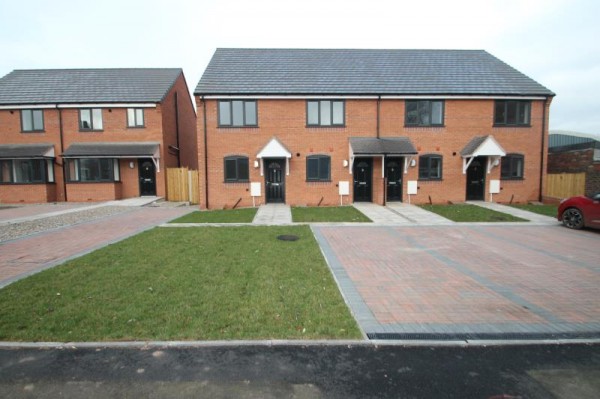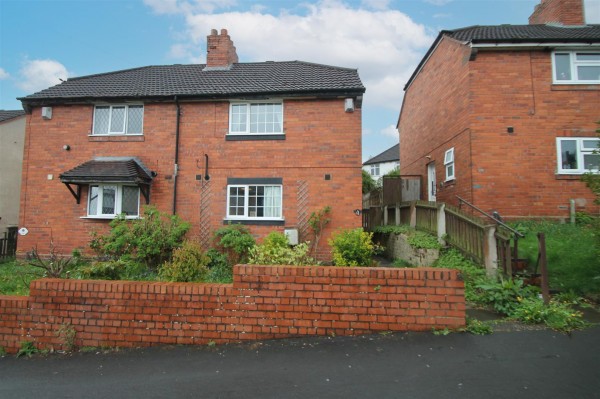Property Insurance
Your property and contents should be thoroughly insured for letting. This should include insurance cover for loss of rental income. Policies should also include public liability, theft and malicious damage by the tenant.
Consent for Leasehold Property
If your property is leasehold you must ensure that any letting is permitted by your lease, and that any tenancy terminates prior to the termination of your lease. Any lease condition must be noted in the tenancy agreement for the Tenant’s attention. If necessary, the written permission of your Landlord should be obtained for sub-letting.
Mortgage
If your property is subject to a mortgage, you must ensure that your mortgagee gives permission for the property to be let and that Hicks Hadley is made aware of any special conditions or terms required by your mortgagee. If you are needing assistance with this, we may be able to refer you to specialist financial advisors who are able to offer products designed for let properties.
Tenant’s Deposit
All deposits for assured shorthold tenancies must be held under a Government-approved Deposit Scheme and registered within 30 days of the commencement of the tenancy. All properties should have an independent inventory conducted prior to the commencement of the tenancy and any properties that we manage.
Jointly Owned Property
If your property is jointly owned, you must ensure that any joint owners are party to the Tenancy Agreement or give their consent in writing for the property to be let.
Utilities
Additional property services such as gas, electricity, water, phone, TV licence and council tax are the responsibility of the Tenant unless otherwise stated.
Condition of the Property
Potential Tenants will pay attention to the cleanliness of the property and the condition of its gardens (if applicable). Prior to occupation, the condition of both the house and the gardens should be inspected and noted by an independent party. By taking these necessary actions, you will achieve the best rent for the property. We also highly recommend having the property professionally cleaned prior to tenants moving in so as to set a high standard of cleanliness and avoid any debates when returning the deposit.
Furnishings
A property can be let fully, part or unfurnished. The Fire & Furnishings (fire safety) Regulations 1988 & 1993 require that all upholstered furnishing, loose fittings, permanent or loose covers supplied in rented properties must meet fire resistance requirements and must display the kite mark confirming it complies with the regulations. We can help advise you as to any items which should be added or removed.
Ongoing Improvement
We strongly recommend that Landlords invest in maintaining and enhancing their property each year. Keeping your property up to date will improve both the quality of Tenant it attracts, and the rental return.
Appliances
All appliances, including central heating, should be inspected and serviced if necessary prior to letting. Service contracts should be kept in force for items such as central heating and kitchen appliances. All details regarding appliances should be given to our staff for record. Any and all instruction manuals/guarantee cards should be left at the property, as well as a copy supplied to us if we are managing for you.
Keys
Tenants are required to have one full set of keys each for all main locks, garages, and gates (if applicable). Window keys and mail-box keys should be offered to at least one tenant as well. We will also require a full set of keys for management purposes if necessary.
Non-Resident Landlord Tax
A Non-Resident is defined by HMRC (Her Majesty’s Revenue and Customs) as:
- You left the UK to go abroad permanently- or your absence and full-time work abroad lasts at least the whole tax year
- Your visits to the UK are less than 183 days in a tax year and average less than 91 days a tax year over a maximum of four consecutive years
If you do not register for Non-Resident Landlord tax exemption, we have to take 20% tax from the gross rent (the income minus allowable expenses) and pay you the net amount remaining. We then send the tax to HMRC. We are audited comprehensively and have to be able to prove to HMRC that we have followed the letter of the law in all cases. Kindly make sure you fill out the NRL 1 form (NRL 2 for companies and NRL 3 for trustees) and gain exemption from HMRC. This means we can pay all your rent direct without removing tax.
Official Procedures for Landlords
As a landlord, you will find there is a substantial amount of red tape in the letting industry to protect both landlords and tenants.
At Hicks Hadley we can advise you on the necessary requirements if you choose us to manage your property.
Included below are some key challenges Landlords face:
Gas Safety – Obligatory
As a landlord you are legally responsible for the safety of your tenants in relation to all things gas safety.
By law you must:
- Maintain and repair any gas appliances, fittings, pipe work and flues provided at the property in safe condition.
- Ensure an annual gas safety check is carried out by a registered Gas Safe engineer qualified to carry out work on gas appliances at the property.
- Your tenant must be given a valid copy of the gas safety record before they move into the property and annually thereafter, retaining copies for at least 2 years.
Energy Performance Certificate (EPC) – Obligatory
Since 2008 all landlords must have a valid EPC for their property to be available for any applicant or tenant viewing a property.
The certificate is valid for 10 years. It scores a property on energy efficiency from ‘A’ (most efficient) to ‘G’ (least efficient). An EPC can only be carried out by a certified Domestic Energy Assessor. It outlines ideas to improve performance, and will also show a building’s environmental impact by specifying it’s carbon dioxide emissions.
EPC’s provide recommendations for reducing the amount of energy your tenants will use and lists:
- Suggested improvements, such as fitting loft insulation.
- Possible cost savings per year, if the improvements are made.
- How the recommendations would change the energy efficiency rating of the property.
Since 1 April 2020, landlords can no longer let or continue to let properties covered by the MEES Regulations (The Domestic Minimum Energy Efficiency Standard) if they have an EPC rating below E, unless they have a valid exemption in place.
If you are currently planning to let a property with an EPC rating of F or G, you need to improve the property’s rating to E, or register an exemption, before you enter into a new tenancy.
If you are currently letting a property with an EPC rating of F or G, and you haven’t already taken action, you must improve the property’s rating to E immediately, or register an exemption.
If your property is currently empty, and you are not planning to let it, you don’t need to take any action to improve its rating until you decide to let it again.
For more information on Energy Performance Certficates visit the UK Government website.
Flues In Voids – Obligatory Where Relevant
Gas Safety inspections must include visual inspections of gas flues which could require hatches to be fitted to enable the engineer to inspect the flues.
If the engineer cannot access the flue it will fail the gas safety inspection and the gas appliance will be rendered unusable.
Electrical Safety – Obligatory
The Electrical Safety Standards in the Private Rented Sector Regulations 2020 are a piece of legislation that help to clarify the definition of 'safe.' This means that all landlords are required to ensure that the electrics in their rental property are not dangerous.
New or renewed tenancies must have a satisfactory Electrical Installation Condition Report (EICR) before they can legally start. Landlords must provide a copy of the report to their tenants, and they are also obliged to carry out any investigative or remedial works indicated in the report. If requested, landlords should also provide the certificate to an applicant and the local authority.
The Inspection should:
- Reveal if any electrical circuits in equipment are overloaded
- Find any potential electrical shock risks and fire hazards in your electrical installation
- Identify any defective electrical work
- Highlight any lack of earthing or bonding and work that does not meet the National Standard
The electrician will score recommendations with a Code 1 - 4, with scores 1 and 2 being serious and urgently requiring remedial work.
Smoke Alarms and Carbon Monoxide Detectors – Obligatory Where Relevant
From the 1st October 2015 Government regulations require smoke alarms to be installed in rented residential accommodation, and carbon monoxide alarms in rooms with a solid fuel appliance. Changes are also made to the licence requirements in relation to houses in multiple occupation (HMOs). This includes shared houses and bedsits which require a licence, and also in relation to properties which are subject to selective licensing. The Regulations apply both to houses and flats. Failure to comply can lead to a penalty being imposed of up to £5,000.
During any period beginning on or after 1st October 2015, while the premises are occupied under a tenancy, (or licence) the landlord must ensure that a smoke alarm is equipped on each floor of the premises on which there is a room used wholly or partly as living accommodation. A living room classifies as; a lounge, dining room, kitchen, bathroom, toilet, hall or landing. This means that a smoke alarm must be provided in working order on each floor of the building. In respect of individual flats located on one floor, there will have to be at least one alarm within the flat itself or alternatively provided outside the flat on the same floor of the building, i.e. a communal alarm.
Please note that these points are intended as a guide only- and although up to date at the time of writing, the above is not an exhaustive list of a landlord’s responsibilities. For further information on any of the above contact Hicks Hadley Lettings Agents who can give further guidance and if necessary refer you to a qualified specialist.








